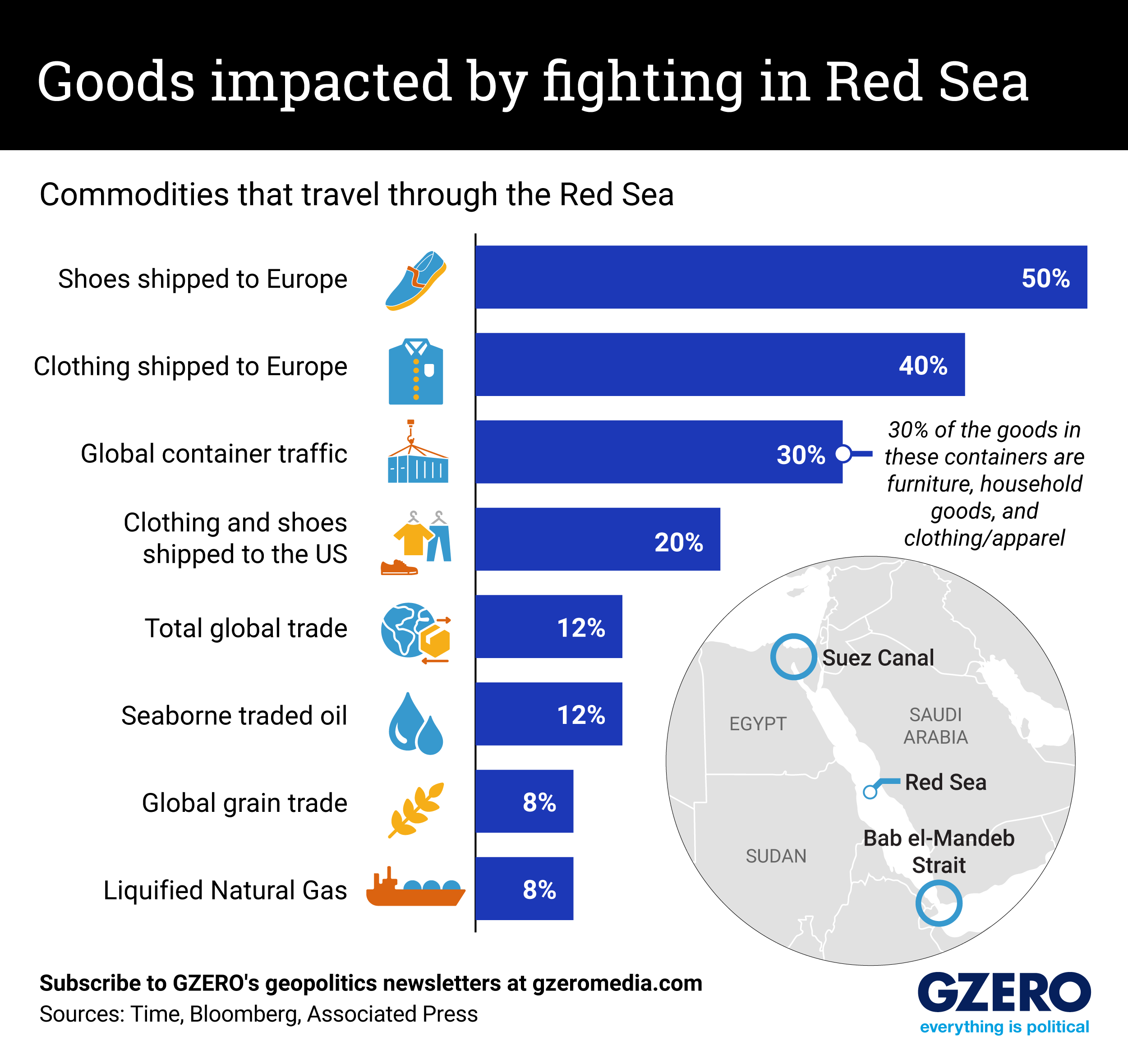Attacks on commercial shipping by the Iran-backed Houthi rebels in the Red Sea have thrown yet another wrench into global trade, which has already struggled in recent years due to the COVID-19 pandemic and the war in Ukraine.
The Red Sea is one of the busiest shipping lanes in the world, accounting for 30% of global container traffic. Due to the recent chaos, over a dozen shipping companies have rerouted their vessels around the tip of Africa – driving up costs and delays. This could also mean rising consumer prices at a time when inflation is already painfully high.
The US and its allies have made efforts to thwart Houthi attacks on shipping, but the Yemen-based militants have remained defiant. As recently as Tuesday, the Houthis fired multiple missiles at two ships in the Red Sea.
These are the commodities impacted by unrest in the Red Sea region.
